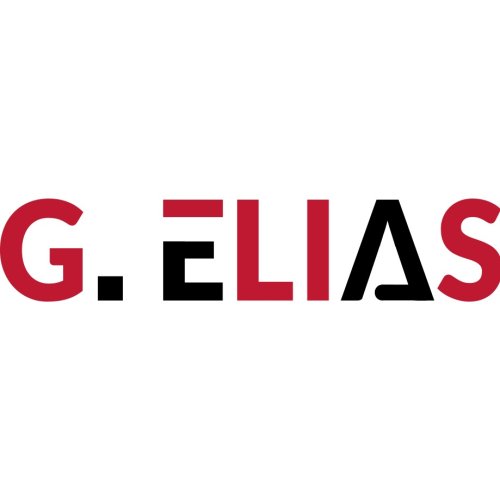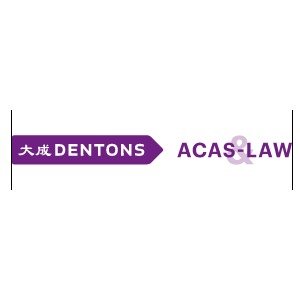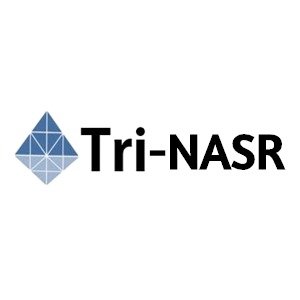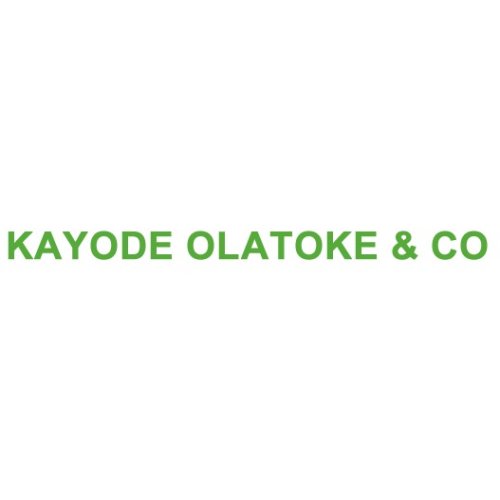Best Public-Private Partnerships (PPP) Lawyers in Abuja
Share your needs with us, get contacted by law firms.
Free. Takes 2 min.
List of the best lawyers in Abuja, Nigeria
About Public-Private Partnerships (PPP) Law in Abuja, Nigeria
Public-Private Partnerships, commonly known as PPPs, are collaborative agreements between government entities and private sector parties to finance, design, implement, and operate projects or services that would otherwise be provided by the government. In Abuja, Nigeria, PPPs have played an increasingly important role in the development of infrastructure such as roads, housing, hospitals, and power projects. The National Policy on Public-Private Partnerships and related regulatory guidelines govern how these partnerships are created and managed. The Federal Capital Territory (FCT) also implements PPPs for various developmental projects through local ministries and agencies.
Why You May Need a Lawyer
Public-Private Partnerships involve complex legal arrangements that require careful navigation. You may need a lawyer for several common reasons:
- To structure and draft PPP contracts that protect your interests
- To carry out legal due diligence on prospective projects or partners
- To interpret regulatory and compliance requirements imposed by local authorities
- To resolve disputes arising from PPP agreements or negotiations
- To ensure that your organization meets all licensing, tax, and reporting obligations
- To guide you through the bidding and procurement process for public projects
- To manage risks related to funding, land acquisition, and community engagement
Legal advice is essential at every stage of a PPP project to minimize risks and maximize project viability.
Local Laws Overview
Public-Private Partnerships in Abuja are guided primarily by the Infrastructure Concession Regulatory Commission (ICRC) Act, which provides the legal framework for privately financed infrastructure projects and services. The ICRC issues guidelines for project approval, procurement procedures, contract management, and risk-sharing mechanisms. The FCT Administration has additional PPP policies in place, often aligning with the Federal Government’s guidelines.
Other laws relevant to PPPs include the Public Procurement Act, Companies and Allied Matters Act, Land Use Act, and various sector-specific regulations. Key aspects to keep in view are:
- Approval processes for PPP projects, often involving multiple government layers
- Transparent, competitive procurement to prevent corruption
- Clear terms regarding risk allocation, responsibilities, financing, duration, and exit clauses
- Compliance with local content requirements and environmental standards
- Dispute resolution procedures, often involving arbitration
Frequently Asked Questions
What exactly is a Public-Private Partnership (PPP)?
A PPP is a formal arrangement where a government entity and a private company collaborate to finance, build, and operate projects or services that benefit the public.
Which government agencies regulate PPPs in Abuja?
PPPs in Abuja are regulated by the Infrastructure Concession Regulatory Commission (ICRC), the Bureau of Public Procurement (BPP), relevant ministries such as the FCT Administration, and in some cases, sector-specific agencies.
What types of projects can be structured as PPPs?
Common PPP projects include transportation infrastructure (roads, airports), power and water supply, healthcare facilities, schools, housing, and waste management services.
What is the typical process for establishing a PPP in Abuja?
The process includes project identification, feasibility studies, approval by relevant authorities, competitive tendering, negotiation of contract terms, and final agreement execution.
What legal agreements are commonly used in PPPs?
Core documents include concession agreements, joint venture agreements, operation and maintenance contracts, and financing agreements.
How is risk typically shared between the public and private sectors?
Risk allocation depends on project specifics, but generally, construction and operational risks are managed by the private party while regulatory and political risks are assumed by the public entity.
What dispute resolution mechanisms are used in PPP contracts?
PPP contracts usually stipulate arbitration or mediation, sometimes followed by recourse to Nigerian courts if out-of-court settlement fails.
How are PPP projects funded?
PPP projects are financed through a mix of private investment, commercial loans, and sometimes government grants or guarantees.
What are the key challenges for PPPs in Abuja?
Challenges include regulatory delays, funding issues, land acquisition complications, and potential political or community opposition.
Do I need a lawyer to participate in a PPP project?
While not compulsory, engaging a lawyer is highly recommended due to the legal and regulatory complexity of PPPs in Nigeria.
Additional Resources
Individuals and companies seeking further information or assistance regarding PPPs in Abuja may contact these organizations:
- Infrastructure Concession Regulatory Commission (ICRC) - responsible for PPP regulation in Nigeria
- Bureau of Public Procurement (BPP) - oversees procurement processes for public projects
- Federal Capital Territory (FCT) Administration - local PPP implementation and oversight
- Nigerian Investment Promotion Commission (NIPC) - provides guidance for investors
- Nigerian Bar Association (NBA), Abuja Branch - directory of qualified lawyers experienced in PPP law
- Chambers of Commerce and industry associations - networking and partnership opportunities
Next Steps
If you require legal advice or representation for a Public-Private Partnership in Abuja, consider the following steps:
- Gather all relevant documents and information regarding your intended PPP project
- Identify your main concerns or legal questions
- Contact a lawyer or law firm with experience in PPPs and infrastructure law in Nigeria
- Arrange an initial consultation to discuss your goals and legal needs
- Work with your lawyer to prepare for negotiations, draft documents, and ensure full compliance with all laws and regulations
- If you encounter disputes or regulatory issues, seek timely legal intervention to protect your interests
With expert legal guidance, you can ensure that your PPP project is both compliant and positioned for long-term success in Abuja, Nigeria.
Lawzana helps you find the best lawyers and law firms in Abuja through a curated and pre-screened list of qualified legal professionals. Our platform offers rankings and detailed profiles of attorneys and law firms, allowing you to compare based on practice areas, including Public-Private Partnerships (PPP), experience, and client feedback.
Each profile includes a description of the firm's areas of practice, client reviews, team members and partners, year of establishment, spoken languages, office locations, contact information, social media presence, and any published articles or resources. Most firms on our platform speak English and are experienced in both local and international legal matters.
Get a quote from top-rated law firms in Abuja, Nigeria — quickly, securely, and without unnecessary hassle.
Disclaimer:
The information provided on this page is for general informational purposes only and does not constitute legal advice. While we strive to ensure the accuracy and relevance of the content, legal information may change over time, and interpretations of the law can vary. You should always consult with a qualified legal professional for advice specific to your situation.
We disclaim all liability for actions taken or not taken based on the content of this page. If you believe any information is incorrect or outdated, please contact us, and we will review and update it where appropriate.

















